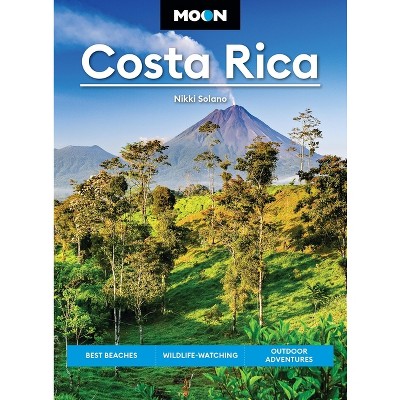Sponsored

The Evolving Geography of Productivity and Employment - (World Bank Latin American and Caribbean Studies) by Elena Ianchovichina (Paperback)
$43.95
In Stock
Eligible for registries and wish lists
Sponsored
About this item
Highlights
- The Evolving Geography of Productivity and Employment: Ideas for Inclusive Growth through a Territorial Lens in Latin America and the Caribbean employs a territorial lens to understand the persistently low economic growth rates in Latin America and the Caribbean (LAC).
- About the Author: The World Bank came into formal existence in 1945 following the international ratification of the Bretton Woods agreements.
- 244 Pages
- Business + Money Management, Urban & Regional
- Series Name: World Bank Latin American and Caribbean Studies
Description
About the Book
This report employs a territorial lens to understand the persistently low economic growth rates in Latin America and the Caribbean. Using new data sources and methods, it argues that deindustrialization, distance, and divisions constrain the productivity of Latin America's cities.
Book Synopsis
The Evolving Geography of Productivity and Employment: Ideas for Inclusive Growth through a Territorial Lens in Latin America and the Caribbean employs a territorial lens to understand the persistently low economic growth rates in Latin America and the Caribbean (LAC). Using new data and methods, it shows that deindustrialization, distance, and divisions offer intertwined explanations for an urban productivity paradox in the LAC region: its highly dense cities should be among the world's most productive, yet they are not. LAC cities have been held back by lack of dynamism, poor connectivity, and divisions into disconnected poor and affluent neighborhoods. Deindustrialization has shifted urban employment, especially in the largest LAC cities, away from manufacturing and toward less dynamic, low-productivity nontradable activities, such as retail trade and personal and other services, that profit less from agglomeration, especially in highly congested cities. Although employment in urban tradable services has risen, the increase has not been strong enough to offset the decline in manufacturing employment. Meanwhile, intercity connectivity issues have undermined the performance of the region's network of cities by restricting market access and firms' ability to benefit from specialization in smaller cities. Within cities, poor connectivity and residential labor market segregation have limited the gains from agglomeration to neighborhoods in central business districts where formal firms operate. Informality has persisted in low-income neighborhoods, where residents face multiple deprivations. By contrast, many agricultural and mining areas have benefited from the strong demand for commodities by China and other fast-growing economies, particularly during the Golden Decade (2003-13), leading to a decline in territorial inequality in most countries in the region. The report concludes that to encourage inclusive growth, countries must more efficiently transform natural wealth into human capital, infrastructure, and institutions and improve the competitiveness of the urban economy. It then sketches out the contours of such a development strategy, identifying policy priorities at the national, regional, and local levels.About the Author
The World Bank came into formal existence in 1945 following the international ratification of the Bretton Woods agreements. It is a vital source of financial and technical assistance to developing countries around the world. The organization's activities are focused on education, health, agriculture and rural development, environmental protection, establishing and enforcing regulations, infrastructure development, governance and legal institutions development. The World Bank is made up of two unique development institutions owned by its 185 Member Countries. The International Bank for Reconstruction and Development (IBRD) focuses on middle income and creditworthy poor countries and the International Development Association (IDA), which focuses on the poorest countries in the world.Dimensions (Overall): 10.5 Inches (H) x 8.0 Inches (W) x .51 Inches (D)
Weight: 1.14 Pounds
Suggested Age: 22 Years and Up
Number of Pages: 244
Genre: Business + Money Management
Sub-Genre: Urban & Regional
Series Title: World Bank Latin American and Caribbean Studies
Publisher: World Bank Publications
Format: Paperback
Author: Elena Ianchovichina
Language: English
Street Date: March 27, 2024
TCIN: 1004206142
UPC: 9781464819599
Item Number (DPCI): 247-36-4422
Origin: Made in the USA or Imported
If the item details aren’t accurate or complete, we want to know about it.
Shipping details
Estimated ship dimensions: 0.51 inches length x 8 inches width x 10.5 inches height
Estimated ship weight: 1.14 pounds
We regret that this item cannot be shipped to PO Boxes.
This item cannot be shipped to the following locations: American Samoa (see also separate entry under AS), Guam (see also separate entry under GU), Northern Mariana Islands, Puerto Rico (see also separate entry under PR), United States Minor Outlying Islands, Virgin Islands, U.S., APO/FPO
Return details
This item can be returned to any Target store or Target.com.
This item must be returned within 90 days of the date it was purchased in store, shipped, delivered by a Shipt shopper, or made ready for pickup.
See the return policy for complete information.











